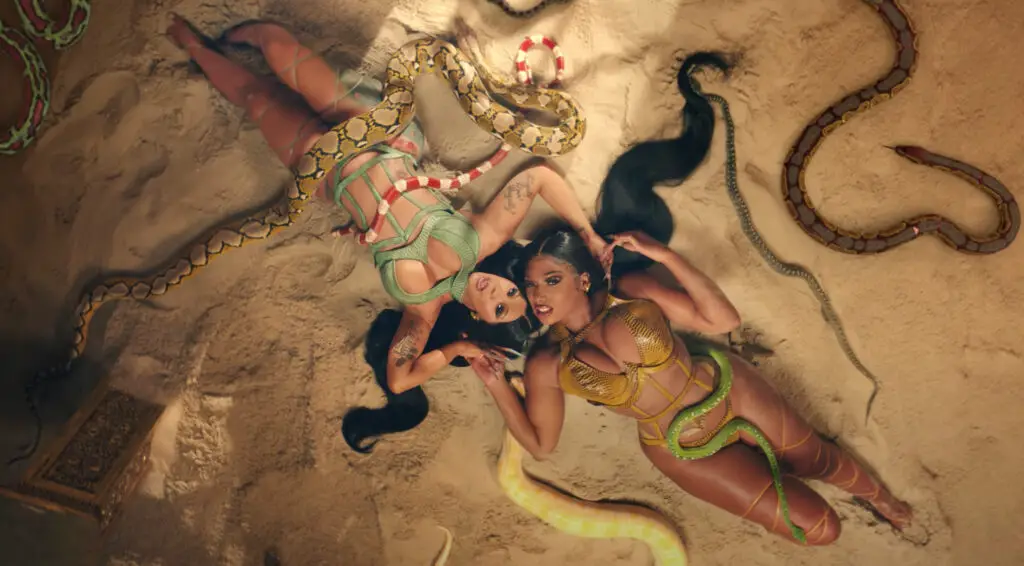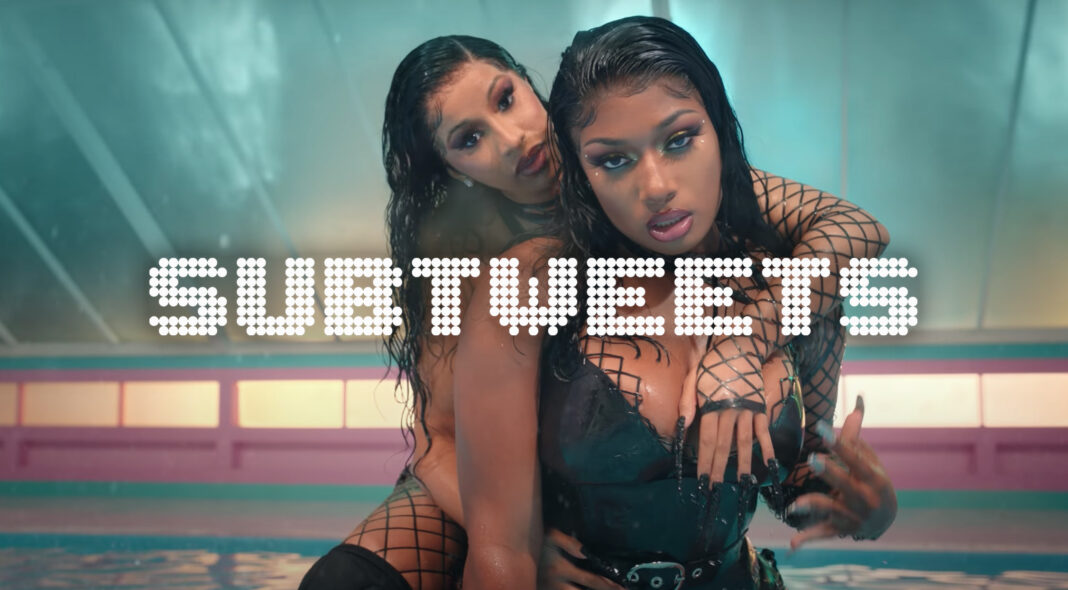You’ll likely remember where you were when you first heard it. “There’s some whores in this house…There’s some whores in this house…” – a metronomic trap beat that creeps up the corridor, stretching out its hand to entice you away into the bedroom. You’re unsure if it’s objectifying or empowering, but then Cardi B and Megan Thee Stallion appear in acid pink and yellow, reassuring you that this is your time. Their intent is obvious – to temporarily transport you from lockdown to the land of sexual fantasy, where we no longer have time for coquettish innuendos. In their world, pure, unadulterated desire rules.
As a song or a video, ‘WAP’ won’t be everyone’s idea of empowerment. Even the most liberal of households will feel their toes initially curl a little over Cardi B’s request for her lover to “park that Big Mac truck right in this little garage”, or the image of the damp, writhing pair as they embrace the classic poses of the rap video vixen, detailing the various ways they would wish to receive pleasure. But it’s that latter point that becomes most important when you consider who is actually in charge. These openly bisexual women are loud, proud and 100% aware of the tantalisation they cause, joyfully taking the wheel in an industry that is so used to catering exclusively to the male gaze. “Pay my tuition just to kiss me” will caption thirst trap Instagrams forevermore; OnlyFans entrepreneurs have surely never had a more practical soundtrack upon which to build their empires.

With 75 million views inside of its first week, the internet had many questions. Does ‘WAP’ only stand for ‘Wet Ass Pussy’ or could it also mean something else? Does Kylie Jenner’s presence in the video mean she’s about to drop her own mixtape? Where can we learn to do the splits like that? A true musical event, it’s barely left the trending topics all week, reaction videos and memes sprouting up like daisies. “The Lord ain’t going to approve of this”, jokes one YouTube viewer. On the more genuinely critical end, rapper CeeLo Green called it “disappointing on a personal and moral level”, while Conservative talking head Ben Shapiro read its lyrics out in a now-viral deadpan, suggesting that having consulted with his doctor wife, he could decree that any arousal requiring a ‘bucket and a mop’ was cause for serious medical concern.
Certainly, ‘WAP’ is a track so unsafe for work that it wouldn’t get within twelve feet of HMRC. But is it really any worse than what we’ve been hearing male rappers brag about for years? Does it really go any further than Lil’ Kim or Lil’ Trina did in the 90’s, or even Khia’ classic ‘My Neck, My Back’ did in 2002? In an age where right-wing Americans don’t seem to care about their own Presidential leader grabbing women by the pussy, it’s a telling sign that they remain shocked at the idea of two black women exerting their own agency. Perhaps the cold hard truth of it is that to them, an overt display of female sexuality isn’t quite as titillating if it isn’t controlled within the medium of male demand. Suddenly, it is considered gross and desperate, putting women in a dichotomous position that they can never live up to – a respectable ‘good girl’ who is also a ‘freak’, one who is smart and self-sufficient but never richer or more well-known than the man. This expectation passed down through generations of male-made rap is undoubtedly much more damaging to young women than a single instance of two female rappers telling them that they might one day enjoy confident, consensual and satisfying sex.
Whether you like ‘WAP’ or not, after the shock factor of a song about a well-lubricated vagina wears off, you’re left with something that doesn’t happen all that often anymore in music – a moment of two female titans coming together in support, sticking two fingers up at the patriarchal idea that dictates there can only ever be one woman on top. As Cardi and Meg trade bars, they’re not looking to outdo each other – just to revel in one another’s humour and womanhood. That it hits No.1 a mere week after Taylor Swift’s ‘cardigan’ is even more reason to rejoice – all women living their truths at the top of the game, making work that expresses their needs, wants and gasp – relatabilities. Just like sex itself, it’s the matter of choice that’s important. When ‘WAP’ comes calling, who are we not to ride the wave?


